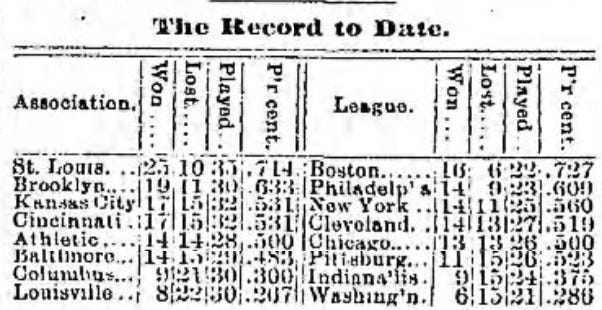The Forfeit That Wasn't
We tend to forget that baseball once had a restriction on substitutions. While I was researching the history of baseball’s substitution rules, I came across a fascinating story from a Brooklyn - Columbus game in 1889:
Basically, Dave Orr of the Columbus Solons was upset about what he considered a bad call at third base. He was kicked out of the game, but initially refused to leave the field. The umpire then ruled that the game was to be forfeited to Brooklyn by the standard 9-0 score in keeping with the rules of the time.
In the end, though, the players were able to convince him to leave — largely because Columbus would have had to pay a $1,500 fine, which was a huge amount in 1889. This, of course, was in the old American Association, which was in a small scale baseball war with the National League at the time. Brooklyn relented and allowed a substitute to come in instead of demanding that the game be given to them by default.
Brooklyn won in the end:
And, if you’re curious, this is what the pennant races looked like at the conclusion of this game:







Odd box -- 23 putouts by Columbus instead of 24. (It's not related to the ejection; that runner was ruled safe.) I'm thinking that all the references to sacrifices in the story meant any out that advanced a runner, intentional or not. On the other hand, five assists for the Brooklyn catcher suggest that a lot of balls weren't being hit very far. I'm pretty sure stolen bases in 1889 -- the box says there were 11 of them -- still included some extra-base advancements on hits. (Apparently the umpire, "Mr Goldsmith", was Fred Goldsmith, the curve ball pioneer from the early 1880s.)